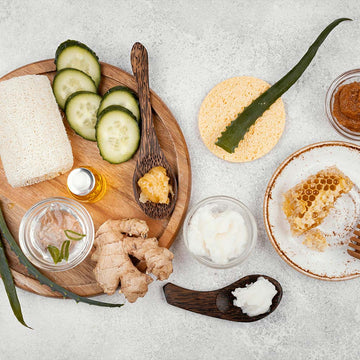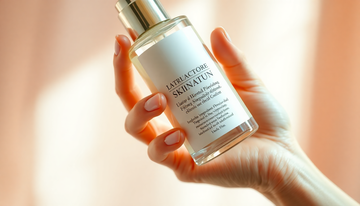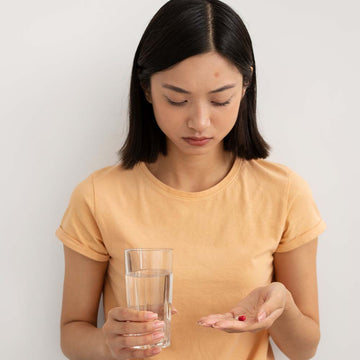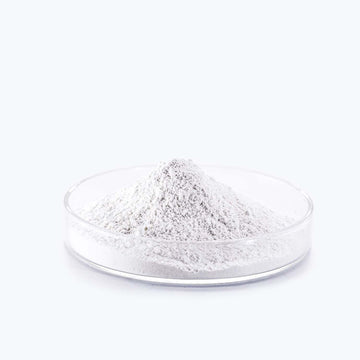At Acne-x Topical, we acknowledge the challenges associated with managing acne-prone skin and emphasize the significance of holistic solutions. This comprehensive guide explores a variety of natural remedies tailored to target acne while enhancing overall skin health. Before delving into these remedies, it's crucial to understand the basics of acne a prevalent skin condition characterized by pimples, blackheads, and whiteheads, often stemming from factors like excess oil production, clogged pores, bacteria, and inflammation.
Natural Remedies for Acne
1. Tea Tree Oil
Renowned for its antiseptic and antimicrobial properties, tea tree oil, when diluted with a carrier oil, becomes a potent weapon against acne-causing bacteria. Learn how incorporating tea tree oil into your skincare routine contributes to achieving clearer and healthier skin.
2. Honey and Cinnamon Mask
Harnessing the calming effects of honey combined with the antimicrobial properties of cinnamon, this blend creates a potent mixture. Explore how applying this mask for 15-20 minutes can unlock its antibacterial and anti-inflammatory benefits.
3. Green Tea Extract
Explore the antioxidant-rich realm of green tea extract, offering significant benefits for acne-prone skin. Packed with polyphenols, it exhibits both anti-inflammatory and antimicrobial properties, potentially reducing inflammation and redness associated with acne.
4. Aloe Vera Gel
Renowned for its soothing and healing properties, aloe vera gel is a natural remedy with anti-inflammatory qualities. Discover how applying a thin layer can offer a calming effect, reducing redness and inflammation associated with acne lesions.
5. Apple Cider Vinegar Toner
Uncover the balancing act of apple cider vinegar as a natural toner. By diluting it with water and applying it using a cotton pad, its astringent properties may help control excess oil production and prevent acne breakouts.
6. Turmeric Paste
Enter the realm of turmeric, celebrated for its anti-inflammatory and antioxidant properties. Learn how creating a paste and applying it to acne-prone areas can effectively reduce inflammation and promote healing.
7. Omega-3 Fatty Acids
Delve into the importance of incorporating omega-3 fatty acids into your diet for internal support against acne-prone skin. Found in fatty fish, flaxseeds, and walnuts, these fatty acids possess anti-inflammatory properties contributing to improved skin health.
8.Azadirachta Indica (Neem) Extract
Unveil the power of Azadirachta Indica extract from the Neem tree. With its antimicrobial properties combating acne-causing bacteria and anti-inflammatory effects reducing redness and inflammation, it proves to be a formidable opponent for a healthier skin environment.To know more click here.
Additional Ingredients for Enhanced Skincare
1.Maclura Cochinchinensis (Cockspur Thorn) Leaf Prenylflavonoids
Explore the benefits of Maclura Cochinchinensis, commonly known as Cockspur Thorn, and its leaf prenylflavonoids. These offer potent antioxidant properties, acting as a shield against free radicals, and may contribute anti-inflammatory benefits for a calm and balanced complexion.
2.Sophora Flavescens (Kushen) Root Extract
Discover the valuable addition of Sophora Flavescens, or Kushen, root extract to skincare. Boasting anti-inflammatory and antimicrobial properties, it aids in calming irritated skin and contributes to maintaining a harmonious and blemish-free complexion.
3.Glycyrrhiza Inflata (Liquorice) Root Extract
Unearth the skincare gem extracted from the Liquorice plant - Glycyrrhiza Inflata root extract. With its anti-inflammatory properties, it plays a crucial role in reducing redness and swelling, making it an ideal solution for sensitive or irritated skin, imparting soothing effects for relief.
4.Scutellaria Baicalensis (Baikal Skullcap) Root Extract
Rooted in Scutellaria Baicalensis, this extract is rich in antioxidants, offering robust protection to the skin against damage. With its antioxidative prowess and anti-inflammatory properties, it actively contributes to controlling acne, fostering a healthier complexion.
5.Leptospermum Scoparium (Manuka) Branch/Leaf Oil
Derived from the Manuka tree, this oil is a natural antibacterial powerhouse. Its ability to target acne-causing bacteria makes it an effective solution for maintaining clear and blemish-free skin. Additionally, it aids in wound healing and reduces inflammation, promoting an overall healthier skin environment.
6.Piper Nigrum (Black Pepper) Seed Extract
Extracted from Black Pepper seeds, this seed extract brings multifaceted benefits. Its potential antioxidant effects provide a protective shield for the skin, while its anti-inflammatory properties actively contribute to managing acne, fostering a balanced and revitalized complexion.
Frequently Asked Questions (FAQs)
1. What is the significance of holistic solutions in managing acne-prone skin?Holistic solutions play a crucial role in addressing the challenges associated with acne-prone skin. At Acne-x Topical, we emphasize the importance of a comprehensive approach that considers various factors impacting skin health.
2. How does tea tree oil contribute to clearer and healthier skin?
Tea tree oil is renowned for its antiseptic and antimicrobial properties. When diluted with a carrier oil, it becomes a potent weapon against acne-causing bacteria, making it an effective addition to your skincare routine.
3. Can the honey and cinnamon mask truly unlock antibacterial and anti-inflammatory benefits?
Absolutely! The honey and cinnamon mask harnesses the calming effects of honey and the antimicrobial properties of cinnamon. Applying this mixture for 15-20 minutes can unlock its antibacterial and anti-inflammatory benefits, contributing to healthier skin.
4. What are the benefits of incorporating green tea extract into a skincare routine?
Green tea extract is rich in polyphenols, exhibiting both anti-inflammatory and antimicrobial properties. Whether consumed or applied topically, it has the potential to reduce inflammation and redness associated with acne, making it beneficial for acne-prone skin.
5. How does aloe vera gel with anti-inflammatory qualities soothe acne-prone skin?
Aloe vera gel, renowned for its soothing and healing properties, offers anti-inflammatory qualities. Applying a thin layer to affected areas can provide a calming effect, reducing redness and inflammation associated with acne lesions.
6. Can apple cider vinegar toner help control excess oil production and prevent acne breakouts?
Yes, apple cider vinegar acts as a natural toner with astringent properties. When diluted with water and applied using a cotton pad, it can help control excess oil production, contributing to the prevention of acne breakouts.
7. What internal support do omega-3 fatty acids provide against acne-prone skin?
Incorporating omega-3 fatty acids into your diet, found in fatty fish, flaxseeds, and walnuts, offers internal support against acne-prone skin. These fatty acids possess anti-inflammatory properties contributing to improved skin health.





